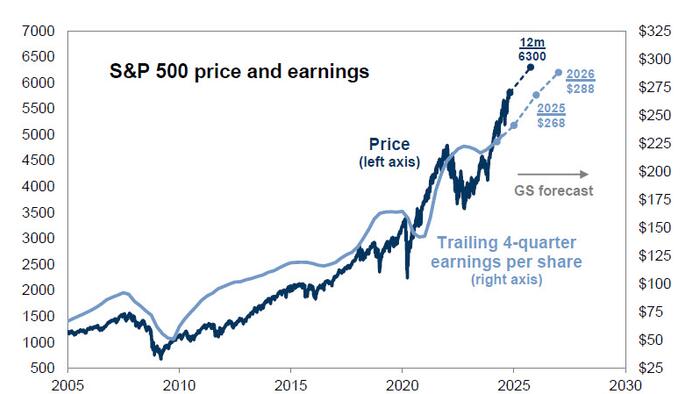In the wake of the recent elections, the political landscape in the United States has been significantly altered, with Republicans poised for a potential “Red Sweep.” This shift raises the prospect of Republican-led initiatives, particularly in the realm of economic and tax reforms, moving forward without seeking Democratic support. With these developments, the focus has shifted toward the implications for the U.S. stock market and the specific investment strategies that could thrive under a Trump administration. Investors and corporate executives are keenly paying attention to how this political environment may affect stock performance, particularly concerning the S&P 500 index and overall equity positioning.
Goldman Sachs’ strategist David Kostin provides a detailed analysis of the effects of these preliminary election results on various aspects of the U.S. equity market. He emphasizes that the market will be particularly influenced by the projected path of the S&P 500 in the coming months, as it remains a critical indicator of overall market performance. As the Republican party consolidates power, expectations are that the S&P 500 could benefit from the anticipated pro-business policies that align with Trump’s agenda, focusing on economic growth, lower taxes, and deregulation. This leads to a speculation on how such a trajectory might yield strong returns for investors, particularly those who strategically position themselves in alignment with these policies.
Additionally, the implications for investor positioning are becoming increasingly significant as market participants adjust their strategies in response to the shifting political landscape. With potential regulatory rollbacks and tax reforms on the horizon, investors may gear up for a recalibration of their portfolios. This readjustment focuses on identifying sectors and companies that stand to gain from Republican policies, further boosting their stock values. Corporate executives are likely to engage in a similar strategy, ensuring their companies are aligned with the anticipated market shifts to maximize returns and mitigate potential risks associated with a changing political environment.
Moreover, notable rotations within the market are expected as trade and tax policies evolve under a Republican-led government. Sectors like financials, energy, and industrials, generally seen as beneficiaries of such a political scenario, may attract increased investment. Kostin highlights the importance of scrutinizing these transitions, as traditional investment patterns may shift in tandem with legislative changes. Investors will remain vigilant in monitoring how these dynamics unfold, ensuring they capitalize on any opportunities that arise from policy updates that can create favorable conditions for specific industries.
Furthermore, the outlook for corporate mergers and acquisitions (M&A) and initial public offerings (IPOs) plays a critical role in shaping investment strategies. Kostin suggests that a business-friendly environment under Trump could stimulate M&A activity, as companies seek to consolidate and expand in light of favorable regulations and tax structures. Similarly, a rise in IPOs may occur as firms take advantage of favorable market conditions to enter the public domain, attracting investors seeking growth opportunities. These factors distinguish a potentially lucrative environment for savvy investors, particularly as the market adjusts to the prospect of an altered political and economic climate.
In conclusion, the political developments following the election have positioned the stock market for potential growth, particularly under a Republican-led administration. Investors and corporate leaders are closely monitoring the S&P 500 index, positioning themselves strategically, and preparing for significant market rotations. Furthermore, there is a renewed optimism surrounding M&A and IPO activities. All of these elements coalesce to create a landscape that, while uncertain, presents numerous opportunities for investment, driving home the importance of adaptability and foresight in navigating the ever-evolving economic environment in the United States.

